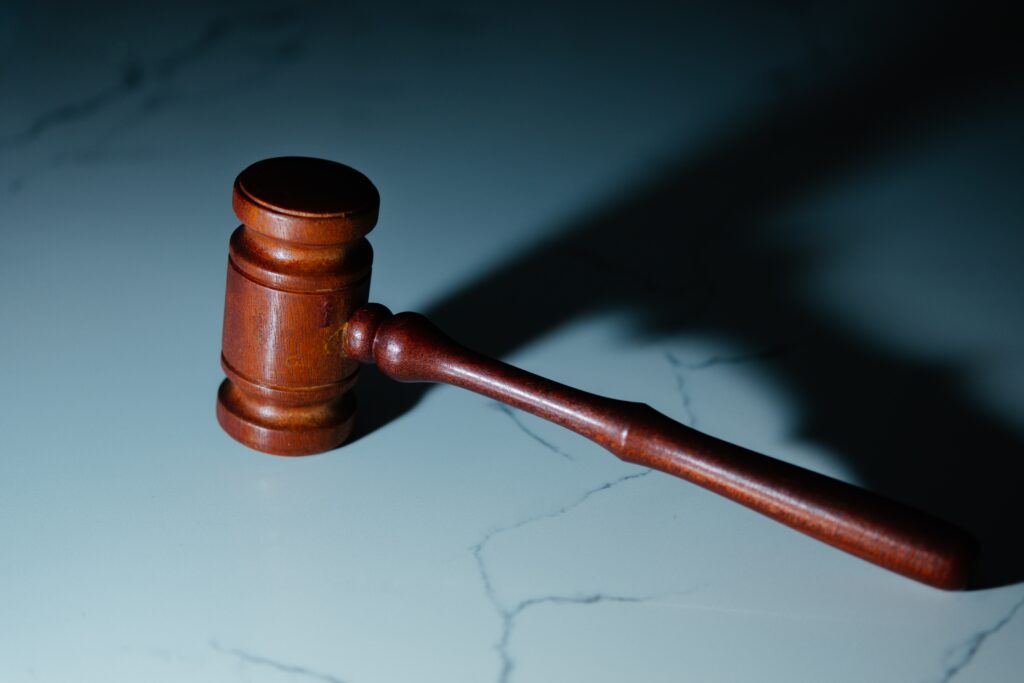A hung jury occurs when a sufficient number of jurors cannot agree to deliver a verdict of guilty or not guilty. In such cases, the judge might direct further deliberations, typically once or twice, through an Allen charge. If a consensus remains unattainable, the judge may declare a mistrial. A mistrial doesn’t imply a conviction or acquittal of the defendant, and in cases of a hung jury, the trial can be retried.
A hung jury or ‘deadlocked jury’ typically benefits the defendant more than a conviction would, due to the difficulties associated with reversing a conviction. These difficulties include restricted appeal opportunities, financial limitations, and the absence of presumed innocence post-conviction. It’s important for jurors convinced of the defendant’s innocence to stand firm in their belief, even if it means enduring the psychological strain of disagreeing with the majority.
Brief overview of trial process in SC:
Trials in South Carolina
In South Carolina, when a case cannot be resolved through a guilty plea or agreement due to disputes over evidence or legal issues, it proceeds to trial. There are two trial types: a bench trial, where a judge determines guilt, and a jury trial, where this decision is made by a jury. Getting to trial involves several steps, including the presentation of initial charges, evidence review, and failed plea bargain attempts. Trials typically occur one to two years post-arrest, with trial notice given about a month in advance. Plea negotiations can continue up until the trial, sometimes concluding even during the trial process.
Trial Choices and Considerations
Defendants can choose between a bench trial and a jury trial. Jury trials involve either six jurors for misdemeanors or twelve for felonies, requiring unanimous agreement for a verdict. Bench trials have the judge alone deciding the case. The choice depends on various factors, like the case specifics, jury versus judge perspectives, and legal complexities.
Jury trials tend to be lengthier due to juror selection and legal explanations. They also open the possibility of a hung jury and mistrial, potentially leading to retrial or renewed plea negotiations. Bench trials avoid the possibility of a hung jury. In both trial types, the prosecution’s burden of proof, sentencing by the judge, and evidence admissibility rules remain constant.
Pre-Trial and Jury Selection
Before trial, pre-trial motions are filed to dismiss the case or limit evidence. These include motions to suppress evidence based on illegal searches or improper procedures. Jury selection involves choosing impartial jurors from a pool, ensuring their eligibility and absence of conflicts. Parties have the right to strike jurors for cause or through peremptory strikes, excluding jurors based on specific, non-discriminatory reasons.
Trial Phases
Opening Statements:
- Both sides outline their case and evidence expectations.
Evidence Presentation:
Closing Arguments:
- Both sides summarize their cases, with the defense highlighting evidence gaps and alternative interpretations.
Jury Instructions and Deliberation:
- The judge instructs the jury on legal aspects, followed by their deliberation to reach a unanimous verdict.
Post-Trial Processes
If acquitted, the defendant is free; if convicted, sentencing follows based on state laws. In case of a hung jury, a mistrial may be declared, allowing for possible retrial. Sentencing is judge-conducted, and those convicted can appeal, marking a separate, lengthy phase where the defendant may remain in custody or, in some cases, be released under monitoring.
Following a mistrial due to a hung jury, a subsequent hearing is set where the prosecution decides on the next steps. The outcomes are either retrial with a new jury or the prosecution dropping the charges. Retrial doesn’t constitute double jeopardy as no verdict was reached initially. This retrial should commence within 90 days unless extended. If the prosecution opts not to retry, your lawyer can help pursue expungement of the charges, subject to specific eligibility criteria that a skilled criminal defense attorney can explain.


